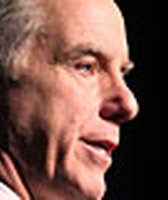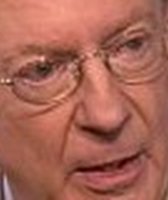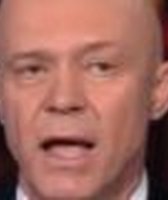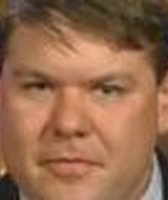Stand up for the facts!
Our only agenda is to publish the truth so you can be an informed participant in democracy.
We need your help.
I would like to contribute
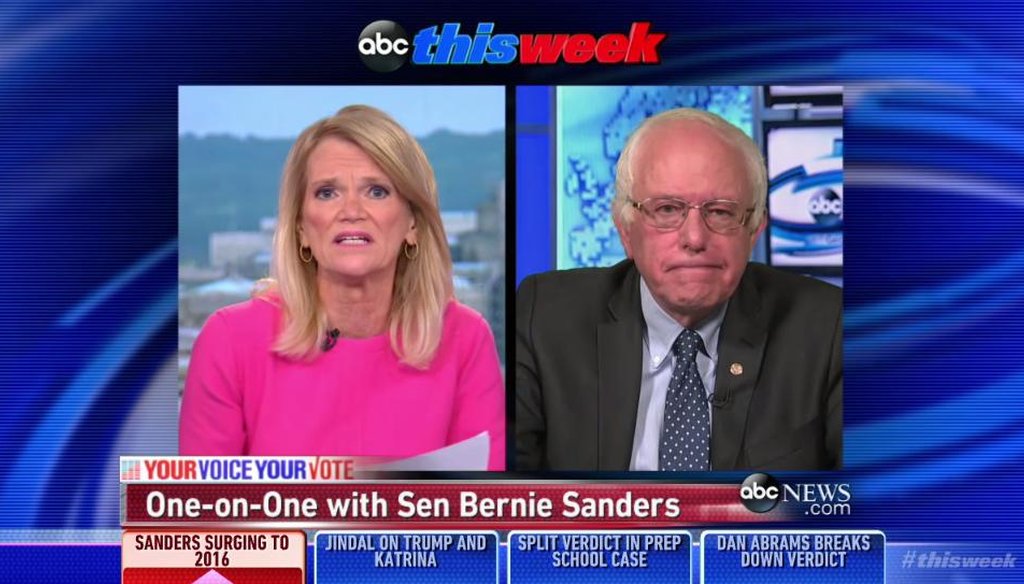
Democractic presidential candidate Bernie Sanders was asked to discuss foreign policy Aug. 30, 2015, on ABC's "This Week." (Screengrab)
Hillary Clinton’s decision to so far skip the Sunday talk show circuit is affording her primary rival Bernie Sanders plenty of opportunities to make his political case.
Sanders appeared on ABC’s This Week and CNN’s State of the Union Sunday to discuss his campaign centered around income inequality and middle-class wage growth. ABC’s Martha Raddatz, however, asked Sanders to discuss a topic that isn’t even mentioned on his campaign website -- foreign policy.
Raddatz asked Sanders to explain his vote against the 1991 Gulf war and his opposition to increased military action in Syria and Iraq, compared to his support for military action in Afghanistan after Sept. 11, 2011.
Sanders said he thought the United States could have forced Saddam Hussein out of Kuwait without a war, and said that military action should be a last option.
"The United States cannot do it alone," Sanders added. "In the Middle East, Saudi Arabia has the third-largest military budget in the entire world. They're going to have to get in and take on ISIS as well as other countries in that region. The United States should be supportive. We should be working with other countries. But the United States cannot always be the only country involved in these wars."
We wondered about Sanders’ claim that Saudi Arabia, with a population roughly the size of Texas, has the "third-largest military budget in the entire world." That rates True.
Sanders’ campaign pointed us to the latest statistics from the International Institute for Strategic Studies (IISS), widely cited as an authoritative source for international security statistics.
According to estimates from the IISS, Saudi Arabia did have the world’s third-largest military budget in 2014, at around $80.8 billion. Its budget was smaller than only China and the United States.
Another reputable group, the Stockholm International Peace Research Institute (SIPRI), catalogues the security expenditures of 171 countries every year.
On that list, Saudi Arabia ranked fourth in 2014, behind the United States, China and Russia.
Why the difference? SIPRI estimates that Russia spent around $84 billion on defense in 2014, almost $14 billion more than the IISS estimates it budgeted.
The dataset’s footnotes, however, make clear that Saudi Arabia likely spent much more than $80 billion on military-related activities in 2014. SIPRI says its numbers "may not include billions of dollars of military aid for Lebanon and Egypt that was announced in 2013 and 2014."
Also Sunday, 2016 Republican candidate Louisiana Gov. Bobby Jindal tried to find a way to stick out among the crowded GOP field. Jindal barely registers in the current RealClearPolitics.com average of national presidential polls.
"I think I'm going to be the nominee," Jindal said on This Week. "I think after we get past this summer of silliness and insults, the voters are going to begin to look at who is prepared to do the job. Who has the intelligence, who has the courage, who has the experience. I believe I'm the candidate best able to do this job on the first day.
"And I'll give you one example, right now the American people are saying we've got to shrink the size of the government, grow the American economy. I'm the only candidate, there are not two, I'm the only candidate that has actually reduced the size of government, and I think that experience matters."
In a field that includes eight other current or former governors, we wondered about Jindal’s claim that only he has reduced the size of government warrants additional scrutiny.
Turns out, one analysis supports his point. But at least one other doesn’t. We rate Jindal’s statement Half True.
To back up his claim, Jindal cites a report by libertarian think tank the Cato Institute.
According to Cato, Jindal is indeed the only governor out of the eight running to have cut spending. During his seven-year tenure as Louisiana's chief, Jindal reduced spending by an average of 1.74 percent every year. Every other governor increased spending.
However, the Cato report is just one way, and something of a simplistic way, to look at the state budget picture. It fails to consider the different per capita income levels across different states (higher incomes bring more government services and thus spending), different approaches to handling federal money (Ohio Gov. John Kasich, for example, took the Medicaid expansion while Jindal did not), and different time periods, lists Alan Auerbach, a professor of public finance at the University of California at Berkeley.
Unlike Jindal and other sitting governors, Jeb Bush, Mike Huckabee and George Pataki weren’t leading their states through economic downturns. Auerbach explains: "During recessions, balanced-budget requirements have typically forced states to cut spending, in addition to legislating tax increases."
Others have looked at this question and come up with different results.
If we look at all funds and adjust for the time differences, four governors actually outcut Jindal, according to a fact-check by Fox News, which compared each governor’s budgets to their contemporaries (in other words, how Bush stacked up against other governors in the 2000s, and how Jindal is doing compared to sitting governors).
The two top spenders by Cato’s count, Bush and Kasich, actually ranked best in Fox News’ analysis. Bush and Kasich slashed spending by 3.7 percent and 1.8 percent respectively. Jindal, meanwhile, came in at No. 5 on the Fox News analysis, with an average reduction of 0.3 percent per year.
Our Sources
See individual fact-checks.



















